Animal Rescue - Blog Posts
Warning: dried up blood (I think)





LOOK AT MY BOY. HIS NAME IS GRIFFIN
I found him on my way home from Prague he couldn't fly and all his tail feathers were ripped out so I took him home. it was quite something trying to find a box in nearby shop, then getting one without the bottom holding together, sticking it together with pigeon stickers from my bag and then an almost 2 hour bus ride home. My family immediately fell in love with him and we took him to the vet. His wing isn't broken but the vet said we should keep him for minimum of 3 months (we're keeping him forever).
Russian culture is ecocide

We have a question for animal rights activists: the guys at our positions have a small moose, its mother was hit by a mine… And here is the question: what to do with this calf? Could you please tweet us the news? If you can help in any way, please write to me in DM.

We have found people who will save the calf. Everything ends well. Here is another photo of the kiddo who also suffered from the fucking russians…

The calf is fine, we are waiting for people from the Wild Animals Rescue Center to arrive. There were problems with their access to the place. We will solve the issue.
The filnal update:
Phew, it was difficult😥 The calf was finally taken away.
Animal's whimpers of grief will haunt me in my dreams but for russians it's nothing.
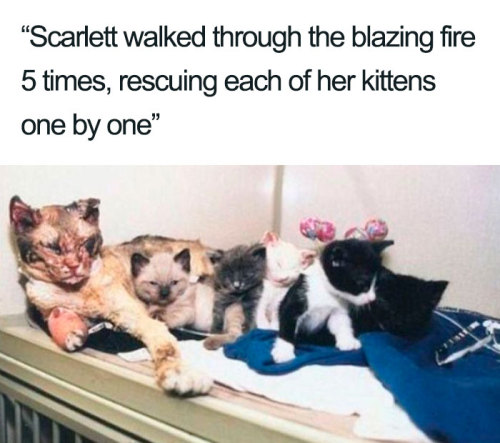
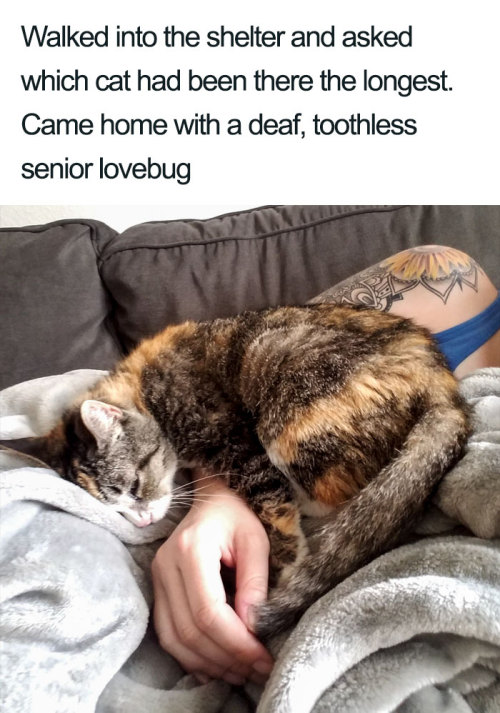

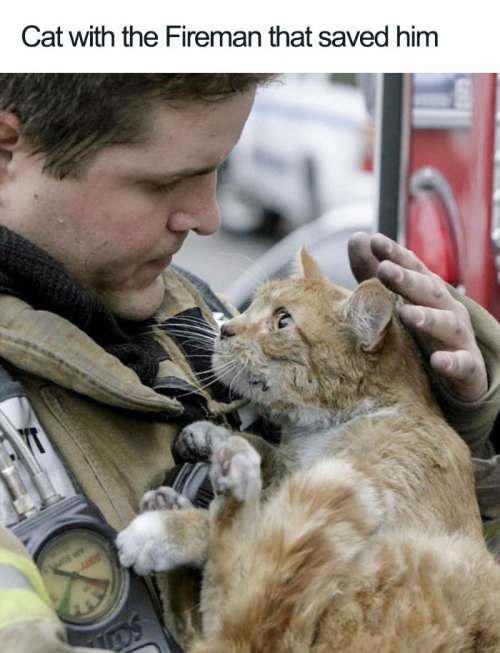
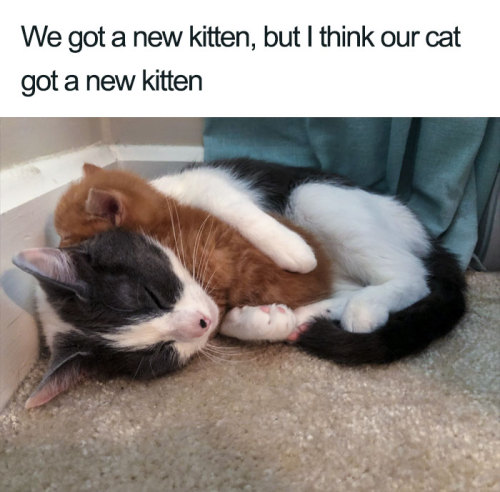
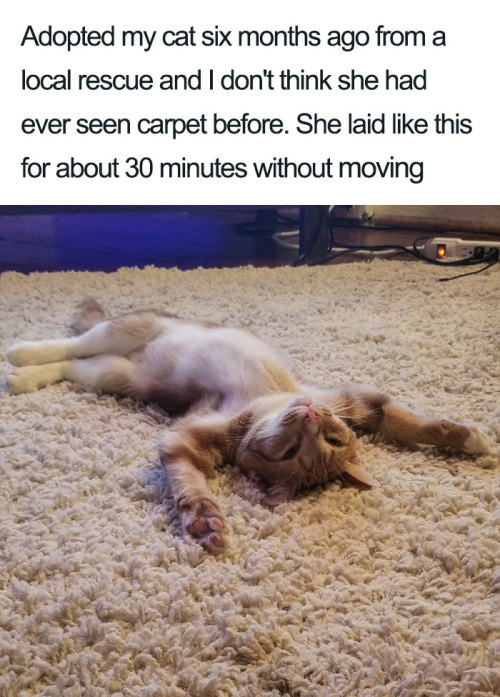
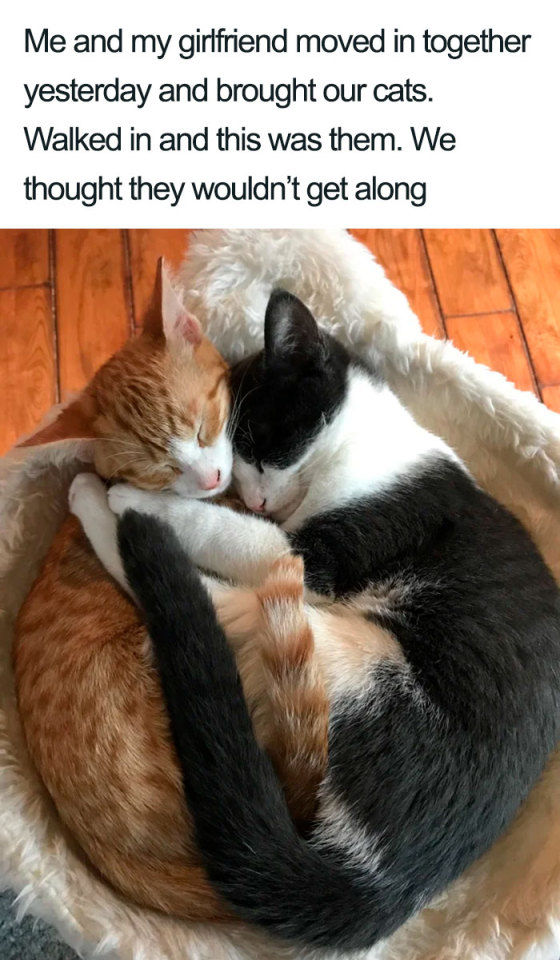
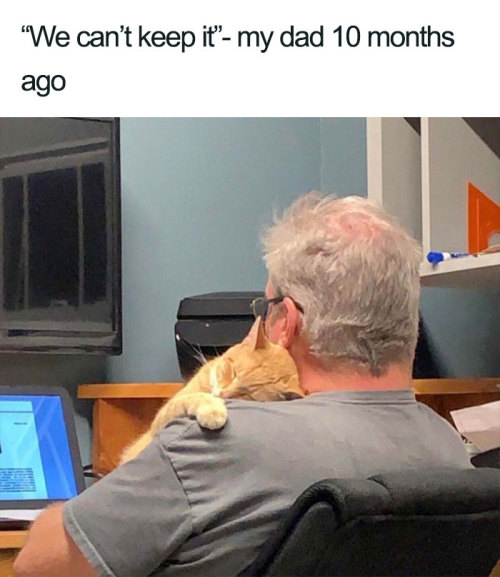
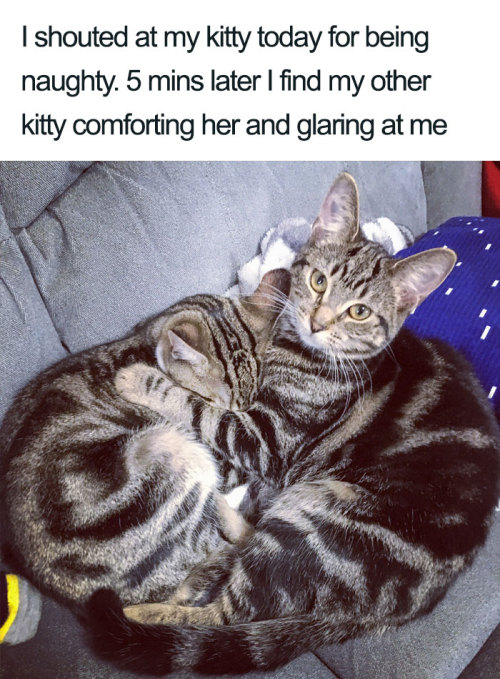
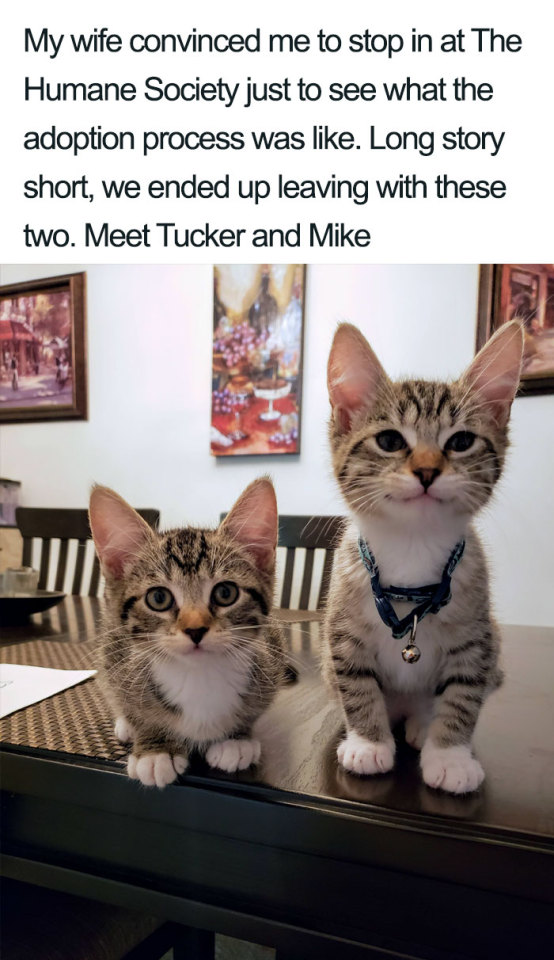
Wholesome Cat Posts That Will Hopefully Make Your Day.
[Yikes... Who'd trust that guy?]


Paul Farthing and Nowzad, states he has 69 staff and 100 “rescue” animals, really, this is a scam, I bet he’s been paid to get these people out under the banner of his so called pet rescue. He said he won’t go unless they all go, good stay there. Taliban Afghanistan

Ever wanted to know more about an animal? Curious about the nature that's all around you? The SNC's environmental experts have conversations with researchers from all over the field of environmental science to bring you fun facts and topics about the science that is happening around you every day!
Listen to our newest episode an interview on Beekeeping with Dr. Leo Gosser here:
https://anchor.fm/snc-wild/episodes/Beekeeping-with-Dr--Gosser-e1080m1
WAIT: Does that animal really need help?
Every year thousands of young animals are found by people. Most of these wild animals do not need to be rescued. Humans are always a young wild animal’s last hope for survival; never its best hope. A young animal should be removed from the wild only after you have received direct advice from a Wildlife Rehabber.
Is the animal an orphan?
An “orphan” is a young animal that is unable to care for itself and whose parents cannot be found or are known to be dead. It is natural for all young animals to explore the world alone once they leave the nest. If you have found a healthy young animal that is able to walk and is fully furred or feathered, it probably does not need your help. Its parents are usually nearby, even if they are not visible to you. Observe the young animal from a distance for some time before calling for help.
Is the animal injured or weak?
If the young animal appears weak or injured, you should call a wildlife rehabilitator or nature center for further guidance on assessing the situation. If an animal has been attacked by a cat or dog, assume there is an injury even if it is not visible.
Should I intervene?
The best way to determine if an animal is in need of your help is to contact a wildlife center BEFORE you intervene. Most times, people that believe they are rescuing baby wild animals are advised to place them back where they found them so their parents can do their jobs. Remember, parent animals will not go for their young while you are around, so don’t panic if you can’t see the mom.
Questions about an animal you think is in need of help? Contact the Sawgrass Nature Center and Wildlife Hospital at 954-752-9453.
This red-tailed hawk was brought to the SNC after colliding with a car. While rehabbers were able to save his life, he permanently lost an eye. This means he will not be able to survive on his own in the wild. Instead, he will remain a permanent resident at the SNC.
The red-tailed hawk has a trilling, raspy scream. This is the cry used by Hollywood directors almost any time a bird of prey is on screen.
Importance of Volunteering
If you are a high school student, volunteering is probably a requirement for graduation. Finding an organization to volunteer with can be challenging, especially during a global pandemic. There are a couple of resources that can help you find opportunities. Before we get to those, I want to encourage you to think about your interests and what you hope to get out of your volunteer experience. I also want to encourage you to look beyond fulfilling a graduation requirement. Volunteering provides you with experience that you can list on your resume and if you stay with an organization for a while, it can lead to references and letters of recommendation. I always remind my volunteers to treat their volunteer position like a job. Just because you are not getting paid does not mean you’re not acquiring work experience.
Where to look
Hands on Broward is a database of volunteer opportunities in Broward County and it allows users to search for opportunities based on their interests and location. Volunteer Connect is Volunteer Florida’s opportunity portal. It runs on the same software as Hands on Broward and is another resource I recommend to anyone interested in volunteering.
Different organizations use these platforms in different ways. At the Sawgrass Nature Center and Wildlife Hospital we use Hands on Broward to recruit episodic volunteers. This means that volunteers that sign up for these opportunities are not making a long-term commitment to us. You can volunteer once or multiple times, but you are limited to the dates and times posted.
If there is a specific organization, you are interested in start by visiting their website. Often, organizations will have volunteering information online. Be sure to read the requirements carefully and follow the instructions provided. If you have questions give them a call or send an e-mail if one is provided. Depending on the organization some volunteer opportunities will have age requirements. For example, our volunteer program has two different tracks based on age: Junior Volunteers are aged 13-17 and Adult Volunteers are 18 and older.
How to be a great volunteer
I am fortunate to work with amazing volunteers daily. They show up and do great work every single day. Our most successful volunteers understand our mission and how it relates to their assigned position. It is for this reason that I encourage volunteers to find something that aligns with their interests and goals. Please start your search early so that you are not scrambling to complete your hours with only months left to spare. Due to Covid-19 a lot of volunteer programs are operating at a limited capacity if they are operating at all.
Lastly, use volunteering as an opportunity to practice important skills such as speaking on the phone and writing professional e-mails. If you need to excuse yourself from a shift or need to ask a question it is a good idea to do it yourself rather than rely on an adult to do it for you. I love hearing from my volunteers and I especially like to see students taking an active role in the management of their volunteer role.
Learn more here: https://sawgrassnaturecenter.org/2020/11/17/finding-volunteer-opportunities-for-high-schoolers/
This orphaned baby raccoon was brought to the SNC after being found by a South Florida resident. Most baby raccoons do not have a fighting chance without their mom in the wild. Luckily, this little guy has grown quite a bit and will soon be ready to be prepped for release back into the wild.
Often times, when people find abandoned babies in their neighborhoods it is because mom has died due to human activity. Wildlife rehabbers and nature centers are imperative to continuing breeding populations for wild animal species that are most impacted by human development and activity.
Our resident yellow-naped parrots love talking to the SNC’s Executive Director, probably because they’ve known her longer than any other staff here! Their incredible memory and bonding behaviors lead to some interesting dynamics.
Parrots are known for their impressive mimicry. Vocal mimicry is the ability to imitate speech or noises. There are many possible reasons why vocal mimicry abilities could be an evolutionary advantage. Improved communication could help with the mating process and imitating predators might scare away competition.




Shoutout to our volunteers who managed to catch some great pics of a few of the SNC’s permanent residents. Featured is Cory the Red Rat Snake, Leonidas the Bearded Dragon, and one of the blue jays in our aviary.
The reptiles featured here are used as educational ambassadors for their species. That means they’re used by professionals to teach visitors about their ecological roles and niche in the environment and why it is so important to protect their species. Leonidas the Bearded Dragon is used in particular as an example of an exotic species. Both reptiles featured here were surrendered pets that the previous owner could no longer care for. Used to a domesticated life rather than hunting for and sheltering themselves, these animals would not survive in the wild on their own.
Our Great Blue Heron was doing some feather cleaning this morning. Look at how long that neck is! The long neck and beak of the Heron was adapted to fishing for prey. This tall birds are excellent at wading through the water and make quite an impressive sight in flight.
“ Great Blue Herons aren’t likely to visit a typical backyard. However, they are sometimes unwelcome visitors to yards that include fish ponds. A length of drain pipe placed in the pond can provide fish with a place to hide from feeding herons. Herons, like most of our birds, are legally protected by the Migratory Bird Treaty Act.” -The Cornell Lab https://www.allaboutbirds.org/guide/Great_Blue_Heron/overview
This juvenile red tailed hawk was brought to the SNC a few weeks ago after being found injured on a golf course. On Sep. 27 the hawk was successfully released back into the wild!
Red tailed hawks are native to Florida and, like all hawks, considered a bird of prey. Their large talons and sharp beaks are perfect for ripping and tearing their prey. It also makes them difficult patients. Luckily, our experienced rehabber was able to get the hawk all patched up and back into the wild in record time!
In honor of World Animal Day, the SNC is spotlighting our Eurasian Collared Dove, named Ginger. Ginger was rescued from a pet store that wanted to put him down because of his inability to stand up straight. When he came to the SNC, we found that he could stand perfectly when he was given a proper perching space.
Because Ginger is an exotic animal to Florida, we are not allowed to release him. Instead, he will live at the SNC with loving care takers as an Educational Ambassador.

This injured Burrowing Owl was brought to the nature center by a concerned Broward County resident to be rehabilitated. We were able to successfully able to release it back into the wild as good as new!
This Burrowing Owl had an interesting feature that made it a unique visitor at our hospital. Most Burrowing Owls have bright yellow eyes. This one in particular possessed a recessive gene that gave it brown eyes instead.
Learn about Florida Box Turtles and rehabilitation of wildlife at the Sawgrass Nature Center!
Great Horned Owls are native to the Americas, with a preference for deciduous, coniferous, forest, and desert habitats. They are carnivores with a diet that includes small mammals, reptiles, and even other owls!
Fun fact: When clenched, a Great Horned Owl’s strong talons require a force of 28 pounds to open.
Our resident owl is with us due to a permanent wing injury that prohibits them from ever flying properly again.
Our resident turkey vulture is a little cheeky. Notice how he poops whenever he sees our caretakers. It’s almost like he knows we’re coming to clean up the place!
Our resident Green Heron, named Goblin, is a little protective. He likes to patrol his territory any time our rehabbers get close. Like all herons, the Green Heron has a long neck. What’s unique about these guys is that they like to keep them pulled close to their chest unless they are hunting, or feel threatened.
Heron are considered aquatic birds. That means they have special adaptations for hunting in and living near freshwater, like the Everglades. Their long necks and pointed beaks make them great fishers.
SNC's resident Yellow-Naped Amazon Parrots were domesticated pets that were donated to us upon their owner's death. While in the wild their life expectancy is about 20-30 years, but in captivity that increases to 60-80 years. Talk about a life long companion!
The Yellow-Naped Amazon Parrots are one of the most intelligent species of parrots. They can typically be found along the Pacific Coast through Mexico and Costa Rica. Two of their main stressors are deforestation and illegal removal of young for the pet trade.

What is a Native Species?
Here in Florida, we are privy to a ton of unique and exciting wildlife due to our proximity to two very important natural features: The Everglades and the ocean. These two exciting ecosystems provide us with animals like Key Deer, the Everglades Snail Kite, and the Florida Panther that may not be found elsewhere in the world.
Any ecosystem or habitat in the world has native species. This means that the species arrived and has evolved in an area by only natural processes. Other species in the ecosystem often evolved together and adapt to sharing an environment. For example, Florida Panthers and deer have adapted to sharing an environment together despite one being predator and the other being prey. It is a relationship they share and rely on to keep each other’s populations in check.
Unfortunately, not every animal we see in the wild is meant to be here. Take, for example, the Burmese Python in the Everglades.
An introduced species like the Burmese Python could affect the environment is several ways. They could adapt poorly in the new environment and perish, they could live within their new home and cause no major harm, or they could thrive with the lack of natural predators and outcompete native species. That scenario could mean that they could take the food, water, space, and other resources that would typically go to native animals. This would disrupt the natural balance in the ecosystem that has evolved over time. When this happens, the non-native species becomes invasive.
Wildlife hospitals like the Sawgrass Nature Center and Wildlife Hospital (SNC) take in and treat native wildlife, but it is illegal for the SNC and anyone else in the State of Florida to release non-native species into the local ecosystem. That means, the SNC can only admit injured or orphaned native animals for rehabilitation and release. Unfortunately, any non-native animal that might come our way would legally have to be euthanized or provided a forever home. Since we cannot always guarantee the space for all non-native animals and do not prefer to euthanize a healthy animal, we encourage finding other places that are specifically meant for taking in and sheltering non-native species.
Turtles lay their eggs on land before leaving them to hatch on their own. The babies are instinctually drawn towards water. These guys hatched on SNC grounds quite a bit away from the nearest freshwater habitat, so we gathered them up and helped them on their way. This increased their chances of survival as they didn't have to fend off hungry birds during the long walk to safety.
Raccoons like the pool to cool off, but they also use it to wash their hands and food.
I hate animal shelters. My family volunteers to foster kittens. This is what the shelter named this pair.
Super Peep
Fuzzy Peep
Thunder Peep
It was a disgrace. We named them after Aang, Katara, and Sokka now. Much better names.
Gives me faith in humanity, but the fisheries that allowed this sort of dumping
Help Save Coco - Now Fully Funded

Friends,
With a harrowing start to the new year, Coco’s (mis)adventures took a dramatic turn on New Years Eve 2020. Right down to the wire the final hours of the year we found that Coco had wiggled out of his E-Collar and scratched open a portion of the stitches from his shoulder wound. This prompted an immediate trip down to the 24 hour Emergency Animal Referral Hospital, where Coco’s heavily draining shoulder was clean and stapled after a massive waiting period that lasted from approximately 8PM New Years Eve to just over 3AM New Years Day.
Yesterday Coco’s campaign became fully funded with tremendous thanks to a whole host of generous, compassionate and big-hearted people leaving us in hysterical fits of happy tears. Overwhelmed with relief and gratitude, we are humbled by the power of people to help those whom at that moment are unable to help themselves.
Full detailed updates can be found on the Official Go Fund Me page for Coco:
So please visit: The GoFundMe Help Save Coco page Here
And to everyone that helped by sharing and donating to this campaign, we hope the Gods preserve you and your families. Thank you a million times over. Thank you!
Help Me Save Coco the Cat for Christmas

Friends,
I know this time of year under these unprecedented circumstances have put us all under great strain. We are collectively looking forward to saying goodbye to 2020.
I am not a person wanting of material possessions. Even so, it breaks my heart to have suffered through so much this year only to find that without surgery my beloved companion Coco may not survive in spite of his own good nature and terrible start to this difficult life.
And so I have created this GoFundMe in hopes to create a miracle. I only ask that if you share it far and wide across your own social media accounts we might together raise the funds required to save a life so precious.
Every share is precious and appreciated. Every dollar raised will go towards fueling a miracle.
Visit the GoFundMe here: Help Save Coco the Cat
Please help me spread this as far and wide as possible!
And thank you. Just thank you!

